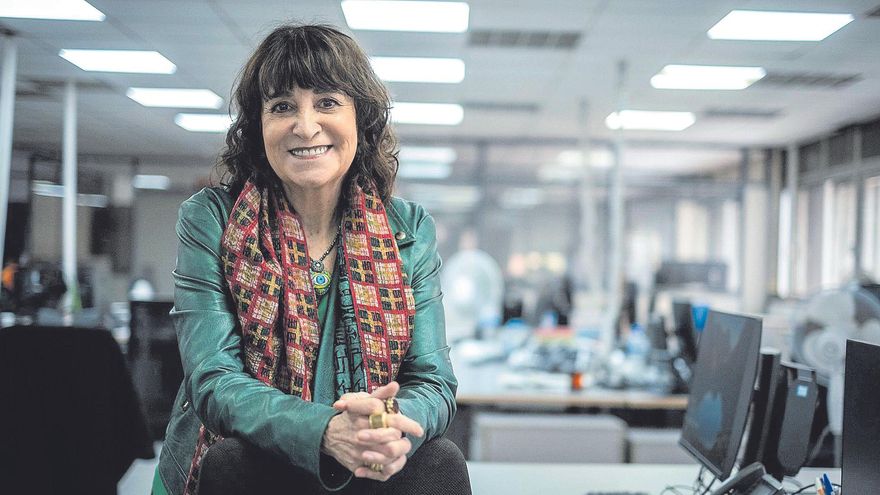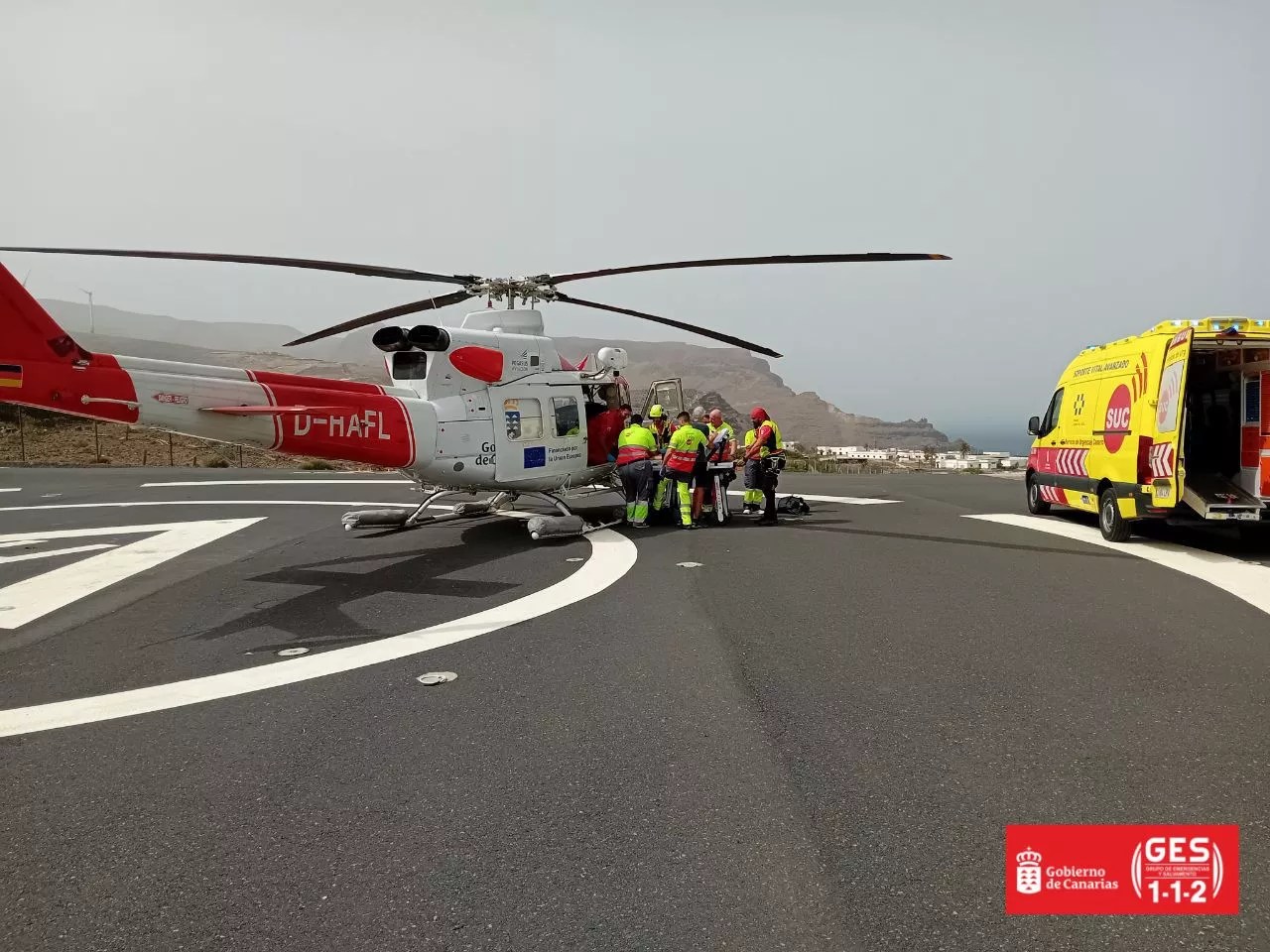
Attended the Festival Tenerife Noir with a new book under your arm that you have described as an experiment: The Unknown. The book marks your return to the noir genre.
[–>
Actually, this is the first book that I have truly written within the genre because I do not believe in genres. In this day and age of the 21st century, I see it as confining and limiting. There are now much more hybrid genres. For example, I have a trilogy with Bruna Husky, who is a detective and also set a hundred years in the future. It is science fiction, noir, and existential novel all in one. This one is the purest, and I have come with that, but above all, I owed it to both the El Barco de Papel Bookstore and the Tenerife Noir organizers. They had been inviting me for several years, and they are so eloquent and do it so well. I already said last year that this would be the year.
You do not believe in genres but perhaps the noir genre is the most versatile of all.
[–>
What I believe is that the resources of the noir genre are used in mainstream novels, so to speak. I have been using these resources in almost all of my novels. This is because these resources allow us to create a modern, contemporary urban epic and delve into social issues. That’s why I think Spain has had such an affinity for the noir genre long before it became trendy worldwide. In a way, it is related to picaresque literature, those literary traditions that delve into social issues and speak from palaces to brothels. This versatility works for any type of novel. And then there’s the intrigue and suspense, I use them because for me life is like that: uncertain, pure uncertainty and pure intrigue. Believing that you can program and ensure tomorrow is a fiction.
Behind The Unknown and its 150 pages is a curious process. A French festival proposes to the writer of the guest country, you in this case, to co-write a novel with a local author.
[–>
They chose Olivier Truc, a writer whom I have known for ten years because we both published in France with the same publishing house. We got along well. The thing is, neither of us usually works this way. Before starting a book, we usually spend between a year and a year and a half preparing. We had never thought about writing with someone else, and the sheer complexity of this proposal tempted us. We had to do it in three months and we couldn’t even stop to think. The idea was to write eight chapters and alternate between each other. They told us to do a sort of exquisite corpse, which is a surrealistic game. But doing it with a noir novel is foolish. Noir novels are the opposite of absurdity; they have to be like clockwork. So from the very beginning, we agreed that we had to develop the novel together. Of course, we tried to surprise each other, but within a framework that we were developing. The number of emails we exchanged was like twice the length of the book. We wrote them in English. It was quite interesting, and I am proud, first, of having finished it. Meeting the deadline amidst all other commitments was an achievement. And the second thing I am very happy about is that it makes sense. It has turned out well, Netflix has already bought it to start shooting a film. We enjoyed it so much that, in fact, we are going to do another one but at a more relaxed pace.
In the novel, a detective in Barcelona and a French policeman with a dubious reputation appear. Did each of you develop one of these characters?
[–>
Yes. I came up with the beginning. One of us had to write the even chapters and the other the odd ones. I took care of the beginning, and he handled the ending. I created the unknown woman, who is found tied and unconscious in a container at the Port of Barcelona, having lost her memory. Then the detective emerged on her own, and he created his character, the French inspector. When I had to write my chapters, I had to pick up his characters and further develop them, and vice versa. This was the most fun part. Seeing your characters start doing things that you didn’t tell them to do is very interesting. And I think we did it well; we read what the other wrote, stayed true to that, and developed it. The entire novel is a journey into the other, but this has been redundant, it has been a journey into the other and the other’s other.
During your stay in Tenerife, you also participated in a talk at the University on memory, literature, and journalism.
[–>
I believe that written journalism is literature. The dichotomy would be, if anything, between journalism and fiction. Being a writer, just like you and me, is a literary genre as wonderful as any other. In Cold Blood by Truman Capote is a report and an extraordinarily literary book. We should strive to create good literature with written journalism, and in fact, we can aspire to create extraordinary literature. It is very rare for a writer to cultivate only one genre, usually several are cultivated. For example, Octavio Paz: essay and poetry. Most writers have also been journalists. Not to mention García Márquez, who is the typical example we mention, or Graham Greene and Mark Twain. Everyone has also been a journalist. I started as a storyteller, writing as a child as a game. My first stories were about talking mice, and I was five years old. Since then, I have always done fiction, and I did journalism because I had a knack for writing.
In fact, this week you are publishing a new book that is closely related to what you are telling me.
[–>
Yes, it has to do with journalism that aspires to find its place, which is in the literary realm. It is called True Stories because it is a collection of chronicles written by me and published in El País between 1978 and 1988. I have called them stories because they are highly narrative. Some of them seem like a chapter from a novel. But they are true, of course.
–>
















